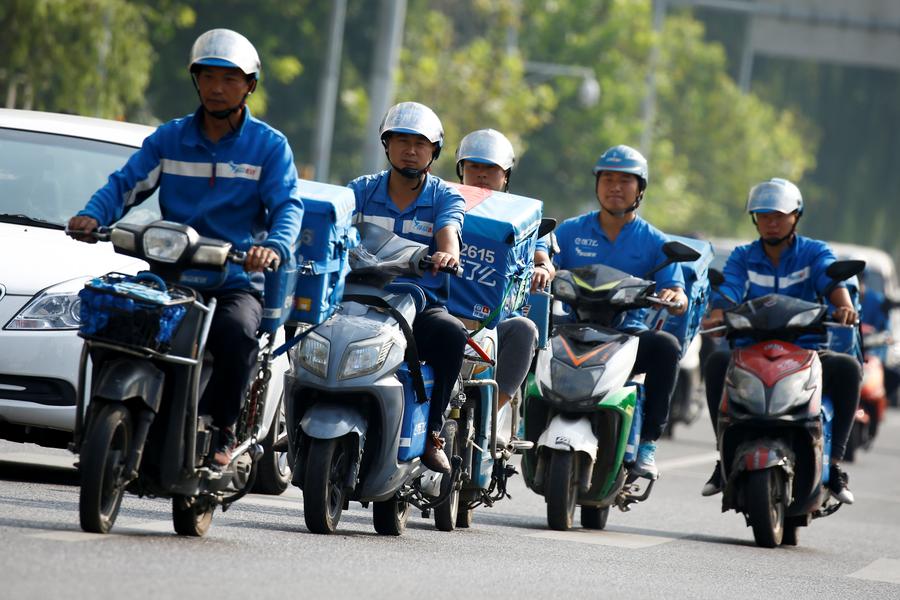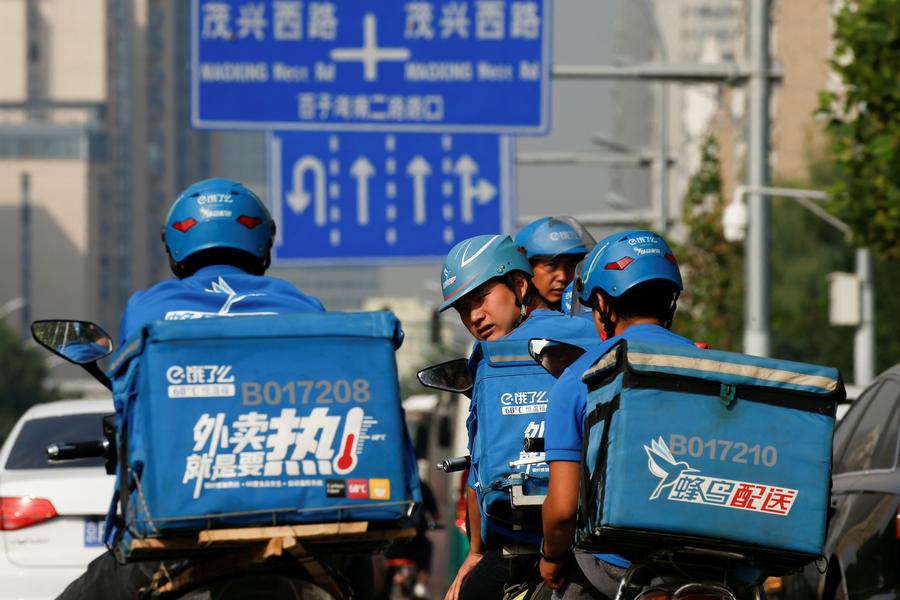Alibaba merging China food delivery units


Alibaba Group plans to merge its food delivery units and raise funds for the combined business, intensifying a battle with Tencent-backed Meituan Dianping for dominance of China's booming on-demand services market, sources told Reuters.
The Alibaba units to be merged include food delivery platform Ele.me and food and lifestyle services firm Koubei, the people said. Alibaba is looking to raise between $3 billion and $5 billion for the combined entity, said one source. The entity could be valued at up to $25 billion, said another.
A Hong Kong-based Alibaba task force is working on the merger and fundraising for the combined entity, according to two of the people.
Alibaba's units and Meituan, backed by social media and gaming giant Tencent Holdings, are fighting for supremacy in China's buoyant online-to-offline (O2O) market where apps link smartphone users with bricks-and-mortar businesses to provide local food delivery and other offerings.
"Alibaba and Meituan are the two main companies that can offer comprehensive O2O services," said Mo Jia, a Shanghai-based research analyst with technology consultancy Canalys. "Alibaba's three units are complementary to each other and it has strategic logic to merge them into one platform to compete with Meituan."
SoftBank Group Corp's Vision Fund is expected to be the lead investor in the fundraising, according to two sources. Other potential investors include Chinese private equity firm Primavera Capital Group, two other sources said.
One of the people told Reuters earlier the new unit would also include Alibaba's Hema Fresh, a chain of cashless supermarkets offering fresh produce and food delivery. The other sources said on Tuesday Hema was not part of the combined unit seeking funding.
Alibaba, which also handles media queries for Koubei and Hema, declined to comment. A spokesman for Ele.me denied the merger and fundraising plan. All the people declined to be named as the information is confidential.
A SoftBank spokeswoman declined to comment. Primavera did not immediately respond to a request for comment.

Booming O2O
The value of O2O transactions in China jumped 72 percent last year to $146 billion, according to Chinese research firm Analysys.
According to a June report by Chinese research firm iiMedia Research, Ele.me and Baidu Waimai, which Ele.me acquired a year ago, held a combined 55 percent of China's food delivery market in the first quarter compared with Meituan's 41 percent.
China's biggest ride-hailing firm Didi Chuxing also entered the fray in April launching its own food delivery service.
Meituan Dianping is expected to raise more than $4 billion when it floats in Hong Kong in the coming months. Last year the company was valued at $30 billion in a fundraising round.
In April, Alibaba bought the shares it did not already own in Ele.me in an all-cash deal that valued the startup at $9.5 billion. The e-commerce giant and its financial affiliate Ant Financial Services Group previously owned a 43 stake in the business, whose name roughly translates to “Hungry?".
Koubei, founded in 2015 as a 50-50 joint venture of Alibaba and Ant Financial, had a valuation of $8 billion at the end of 2017, according to a list of unicorns published by a unit under China's Ministry of Science & Technology in March. Silver Lake, CDH Investments, Yunfeng Capital and Primavera Capital joined as investors in a January 2017 funding round.
Ant Financial declined to comment.
There are no publicly available numbers for Hema, which was founded two years ago as part of Alibaba's retail push and now operates more than 60 supermarkets in 13 cities in China, according to its website.




































